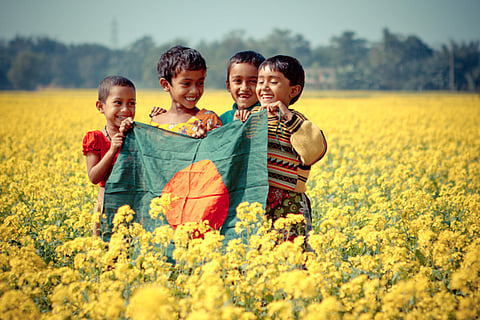Identity grabbing
(This is an essay from our September 2015 print quarterly, 'The Bangladesh Paradox'. See more from the issue here.)
For some years now, a bitter dispute has raged in Bangladesh over the question of whether the indigenous peoples of Bangladesh are entitled to that identification. Activists and organisations representing ethnic minority groups have been seeking official recognition of this designation for over two decades, particularly since 1993 – the year declared by the UN as the International Year of the World's Indigenous People. The indigenous people of Bangladesh constitute more than 45 ethnic groups according to the Bangladesh Indigenous Peoples Forum, although the Bangladesh government lists 27, while other independent reports estimate as many as 75. Averaging below two percent of the national population, they have been more commonly categorised as 'tribal' and 'aboriginal' in various official documents since British colonial times. In Bangla, the term 'adibashi', which used to be understood as 'primitive' and as being equivalent to 'aboriginal', was used quite freely by educated Bengalis to refer to various non-Bengali ethnic minorities.
The semantic emphasis began to change as the term started becoming synonymous with 'indigenous people(s)', the English term being promoted internationally. In this regard, the UN's observation of 1993 as the International Year of the World's Indigenous People marked the beginning of an era when the term 'adibashi' began to take on added significance, and became the focus of much discussion, debate and action within the country. From that year onwards, activists and organisations representing ethnic minorities started demanding that they be recognised as 'indigenous peoples' as per international law and that new provisions be included in the constitution. Despite all their efforts, however, the demands have not been met.

